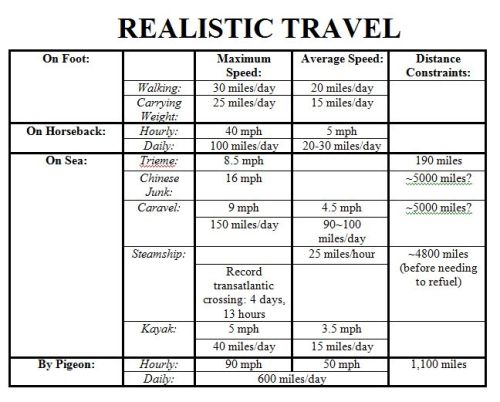Writing Resources - Blog Posts
sometimes you need dialogue tags and don't want to use the same four



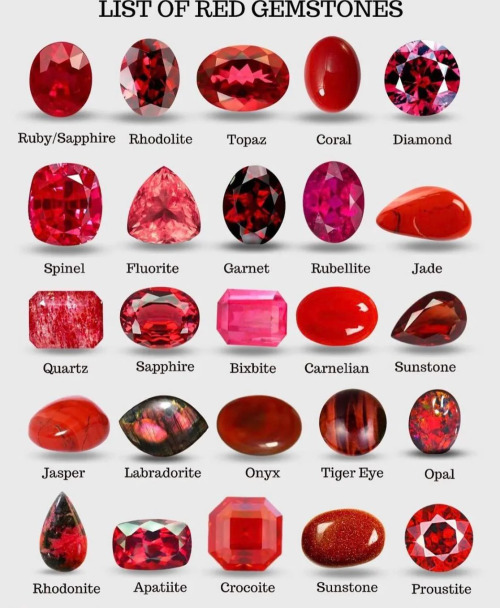

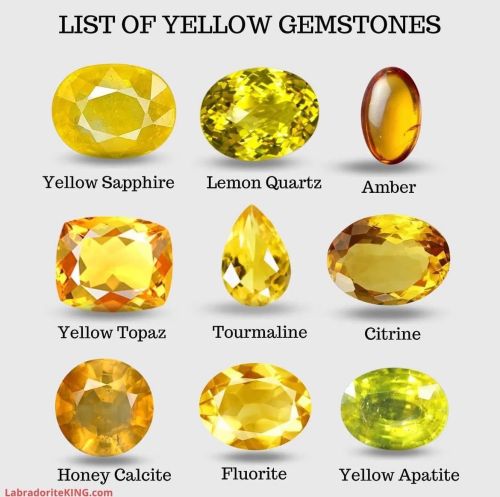
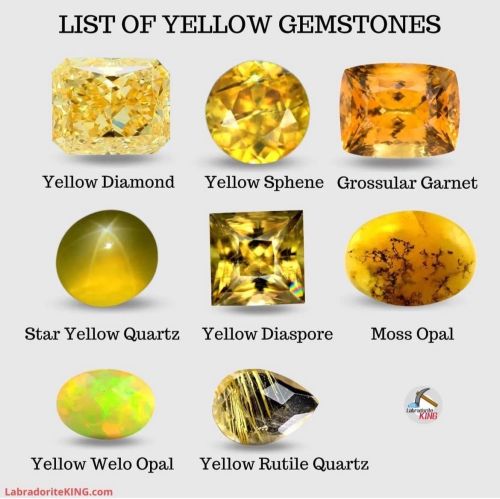
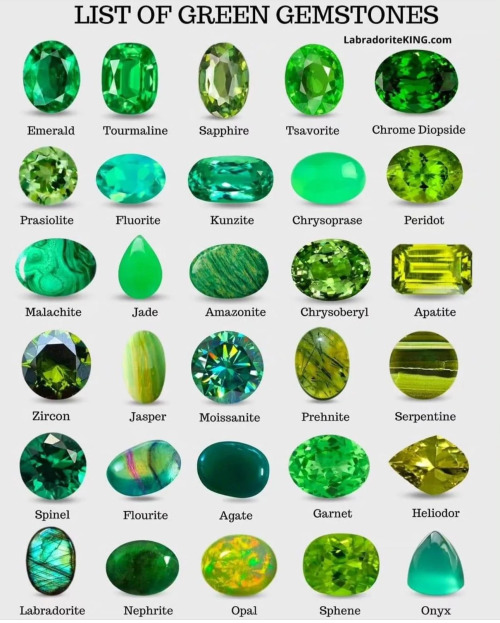
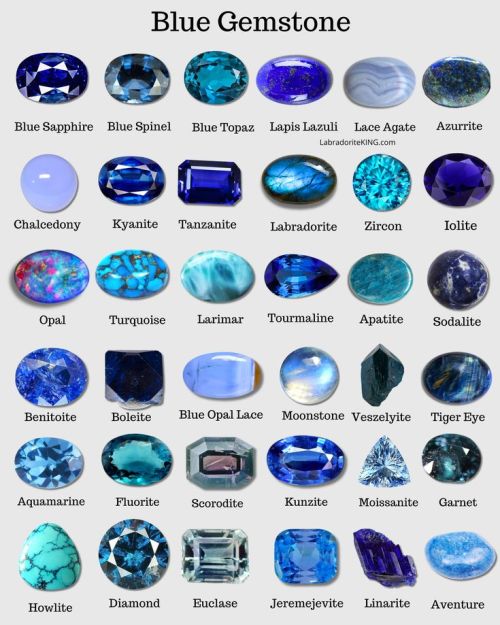
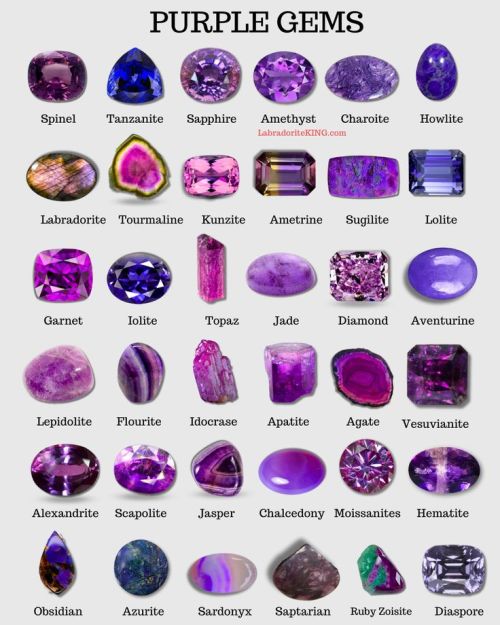

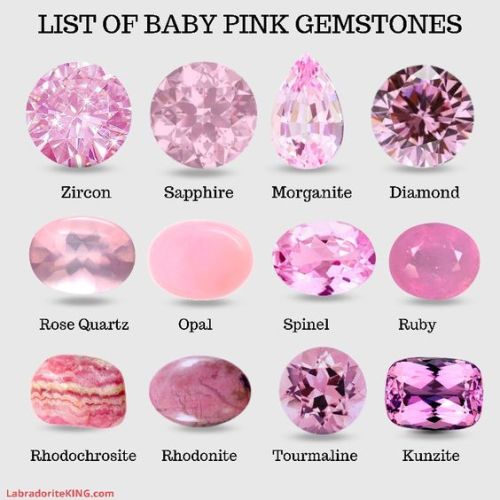
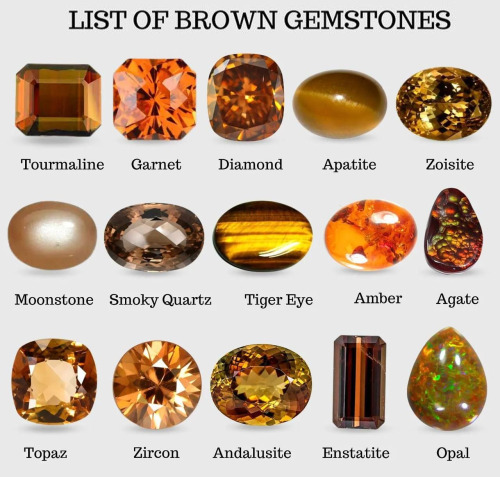
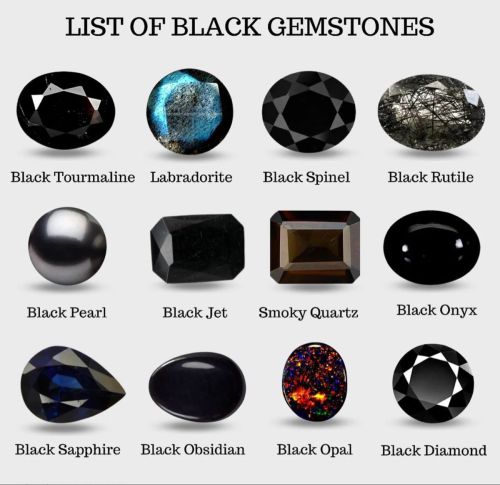
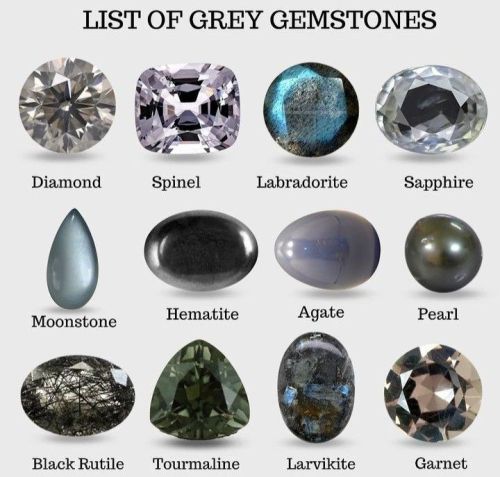
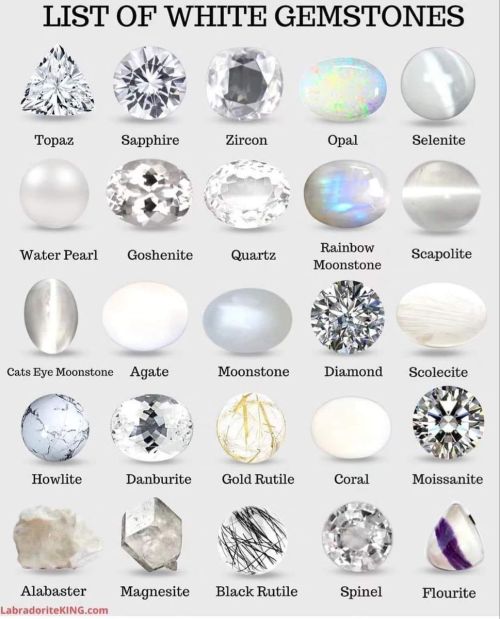
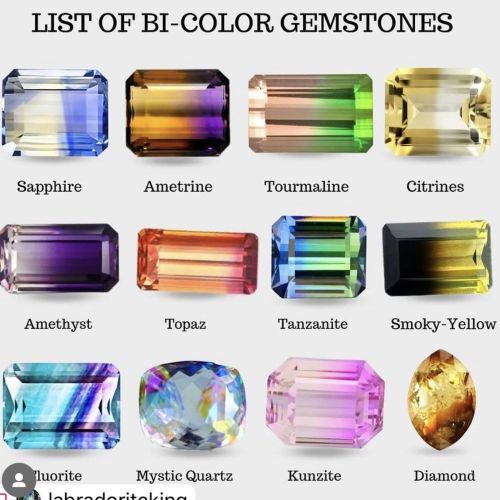
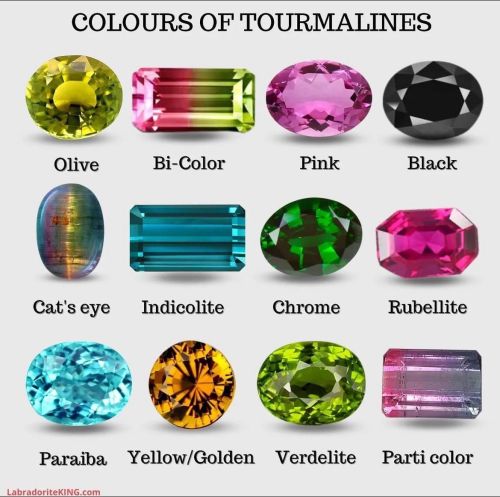
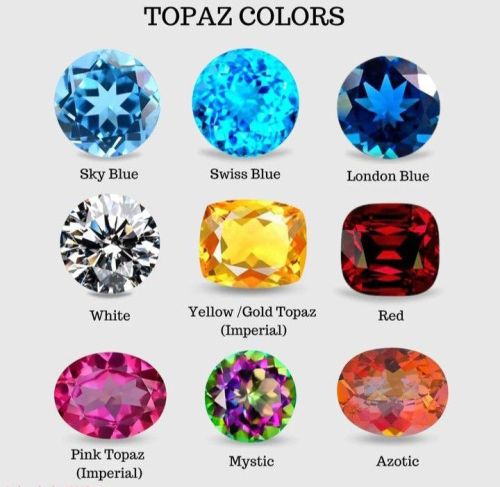
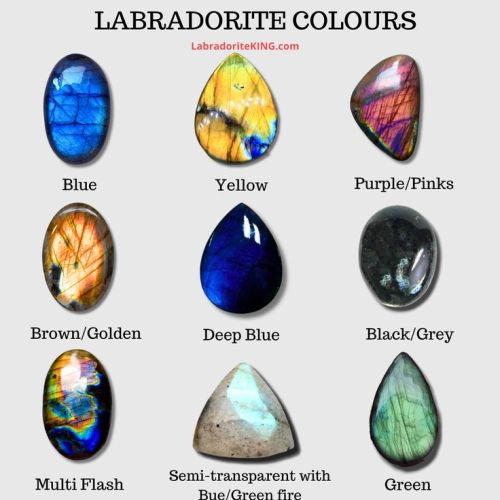
By LabradoriteKing on Pinterest
Character Development : A Collection of Resources

Patreon || Ko-Fi || Masterlist || Work In Progress
–
Resources
Resources For Creating Characters
Resources For Describing Characters
Resources For Writing The Mafia
Resources For Writing Royalty
Commentary on Social Issues In Writing
General Tips
Guide to Character Development
How To Fit Character Development Into Your Story
Tips on Character Consistency
Designing A Character From Scratch
Making characters for your world
Characters First, Story Second Method
Understanding Your Character
Tips on Character Motivations
31 Days of Character Development : May 2018 Writing Challenge
How To Analyze A Character
Alternative Method of Character Creation
Connecting To Your Own Characters
Interview As Your Characters
Flipping Character Traits On Their Head
Character Driven vs. Plot Driven Stories
Traits
Tips On Writing About Mental Illness
Giving Your Protagonists Negative Traits
Giving Characters Distinct Voices in Dialogue
Giving Characters Flaws
Making Characters More Unique
Keeping Characters Realistic
Archetypes
Writing Good Villains
Creating Villains
Guide to Writing The Hero
Positive Character Development Without Romanticizing Toxic Behavior
Tips on Writing Cold & Distant Characters
Balancing Multiple Main Characters
Creating Diverse Otherworld Characters
Foreshadowing The Villain
–
Masterlist | WIP Blog
If you enjoy my blog and wish for it to continue being updated frequently and for me to continue putting my energy toward answering your questions, please consider Buying Me A Coffee, or pledging your support on Patreon, where I offer early access and exclusive benefits for only $5/month.
Shoutout to my $15+ patron, Douglas S.!
Questions to ask yourself when writing an Autistic character
In media, canonically autistic characters are commonly portrayed as false stereotypes about autism, or they convey false/outdated information.
For anyone writing an autistic character, there should be many questions to ask about that character. As someone who has ASD, I really like to see well written autistic characters. Here I have compiled some questions that I use when starting a new character. I have also included links on terms that may be unfamiliar for those just starting out. This list is just a handful of questions, so make sure to continue researching.
General
1. How and/or when were they diagnosed as Autistic?
2. Do they view their autism as a disability? Why or why not?
3. What are some things they like and/or dislike about being autistic?
Support Needs
4. What are their support needs?
5. Do they struggle with executive dysfunction?
6. What kind of tasks are difficult for them?
7. What kind of tasks are they really good at?
8. What kind of accommodations do they have? (Specifically in a school or work environment)
Communication
9. What are their speech habits? Are they fully-verbal, semi-verbal, non-verbal, or does it vary?
10. Do they use echolalia and/or palilalia to communicate?
11. Do they use echopraxia to communicate?
12. Do they use AAC to communicate? If so, which type(s)?
Associated Conditions
13. Do they have/struggle with any kind of agnosia(s)?
14. Do they have/struggle with Alexithymia?
15. Do they have any other common or associated conditions?
Sensory and Stimming
16. Are they a sensory-seeker or sensory-avoidant?
17. What sensations do they like?
18. What sensations do they hate?
19. Describe a place that would be sensory-heaven for this character
20. Describe a place that would be sensory-hell for this character
21. What do they do to stim? Favorite stims? Least favorite stims?
22. Do they use echolalia, echopraxia, etc. for stimming?
Overload, Meltdown, Shutdown & Burnout
23. What puts this character into sensory overload?
24. What are meltdowns like for them? (What are signs a meltdown is starting? Do they seek or avoid comfort? How do they recover?)
25. What are shutdowns* like for them? (What are signs a shutdown is starting? Do they seek or avoid comfort? How do they recover?)
26. What is autistic burnout like for them? (What are signs burnout is coming? How long does it last? What kinds of support do they need? How do they recover?)
Special Interests
27. What are their special interests?
28. What kinds of topics can they infodump about?
Social
29. Does their family know? Are they supportive?
30. Do their friends know? Are they supportive?
31. What aspects of socializing are hard for them?
32. Are they very aware of their social difficulties (i.e. anxious and shy about socializing in fear of messing up) or are they less sensitive to their difficulties (i.e. unafraid/unaware of social mistakes, feels no anxiety to socialize)
*This link should take you to a playlist of videos that covers a lot of the topics talked about in this list. I highly recommend watching them!
Thank you for sticking it out to the end. I hope this helps!
List of Elemental Abilities
Air/Wind
Aerokinesis -manipulate the air, wind, and gas.
Aeroportation - teleport using air/wind currents.
Air Mimicry - transform into a cloud of gas, fog, or mist.
Atmokinesis - manipulate the weather by mixing water, fire, earth, air, and lightning/electricity.
Deoxygenation - suck up all the oxygen from a place.
Lung Adaptation - breath anywhere
Wind Generation - create blasts of air.
Divine Winds Manipulation - create and control heavenly winds.
Dark Wind Manipulation - create and control eerie winds.
Earth
Geokinesis - control, manipulate, and reshape the earth at will.
Atmokinesis - control and manipulate the weather by mixing water, fire, earth, air, and lightning/electricity.
Crystallokinesis - manipulate minerals and crystals.
Ferrokinesis… manipulate metal at will.
Fraxikinesis - manipulate burnt matter.
Geo-Thermokinesis - manipulate, control, and create lava, magma and volcanoes.
Golem Creation - make golems out of inanimate materials like rocks, wood, plants, magma, etc.
Granulation… can turn things into sand.
Halokinesis - control and manipulate salt.
Hyalokinesis - control and manipulate glass.
Koniokinesis - manipulate and control dust particles.
Plassikinesis - manipulate and control all forms of plastic.
Psammokinesis - can control and manipulate sand.
Terrakinesis - control, manipulate and alter/reshape the surrounding terrain and landscape at will.
Terraportation - teleport via the earth and earth-based materials.
Sacred Earth Manipulation - Create, manipulate, control, reshape divine earth minerals.
Black Earth Manipulation - Create, manipulate and control tainted and evil earth minerals.
Fire
Pyrokinesis - create, control and manipulate fire, flame and heat.
Atmokinesis - control and manipulate the weather by mixing water, fire, earth, air, and lightning/electricity.
Fire Breath - breathe out flames.
Geo-Thermokinesis - manipulate lava, magma and volcanoes.
Heliokinesis - manipulate and control the sun and sunlight.
Hell-Fire Manipulation - Generate and control flames of hell.
Holy Fire Manipulation - Generate and control flames of Heaven.
Inflammation - burn things.
Melting - heat molecules to melt things.
Plasmakinesis - can control plasma.
Pyrotechnics - create fireworks.
Self-Detonation - explode self and reform.
Thermokinesis - create, control and manipulate heat.
Water
Hydrokinesis - manipulate and control liquid water and mold it into any desired shape or form.
Aquatic Adaptation - adapted to underwater living.
Aquatic Respiration - breathe underwater.
Atmokinesis- control and manipulate the various aspects of the weather by mixing water, fire, earth, air, and lightning/electricity.
Dehydration - absorb water.
Hydroportation - teleport across short or long distances through liquid water.
Water Mimicry - turn into liquid water.
Holy Water Manipulation - create, manipulate and control graceful waters.
Dark Water Manipulation - create, manipulate and control evil and dangerous waters.
Darkness
Umbrakinesis - can manipulate and control darkness or shadows.
Animated Shadow - Animate one’s shadow.
Light Absorption - block out light in an area.
Night Vision - see in the dark.
Sacred Darkness - create holy darkness.
Shadow Camouflage - be unseen in shadows.
Shadow Mimicry - become a shadow.
Umbrageous Teleportation - teleport via the shadows and darkness.
Electricity/Lightning
Quintessence Force -Can generate whitish-blue lightning that also contains pure life energy.
Electrokinesis - control, generate or absorb electric fields and shoot lightning bolts.
Activation & Deactivation - turn stuff on and off.
Positron Manipulation - control positrons, the antimatter counterpart to electrons.
Electrical Absorption - absorb electricity.
Electric Mimicry -transform entire body into a lightning-like being of pure electrical energy
Electrical Transportation - teleport with lightning.
Divine Lightning Manipulation - create and control the brightest lightning.
Black Lightning Manipulation - create and control the darkest lightning.
Energy
Dynamokinesis - manipulate existing energy.
Energy Blast - create blasts of energy.
Energy Emission - release energy.
Quintessence Force - create and manipulate unique form of electrical and life energy.
Mana Manipulation
Chi Manipulation
Electricity Manipulation
Energy Manipulation
Ice
Cryokinesis - control ice, snow and other forms of frozen water.
Freeze Breath - freeze things in solid ice.
Freezing - lower the temperature in kinetic atoms to freezing temperatures.
Frigokinesis - control snow either as precipitation or already on the ground.
Ice Beam - shoot beams of freezing energy.
Ice Generation
Light
Dark Light Manipulation - create the darkest light in existence.
White Light Manipulation- create sacred light from the divine.
Photokinesis - create and manipulate pure light.
Force-Field Generation - create protective shields of solid photons.
Invisibility - be unseen.
Laser Emission - bend light wavelengths to create lasers.
Light Absorption -absorb the light around you.
Light Generation - emit blinding light or glow in the dark.
Light Mimicry - take on the traits of light.
Photoportation - Teleport by using photons.
Projective Invisibility - turn other things invisible.
Evil Banish - Rid and banish all spirits of evil and black magic.
Light Manipulation
Weather
Atmokinesis - manipulate the various aspects of the weather by using water, fire, earth, air, and lightning/electricity.
Atmokinetic Resistance - immunity to all weather-based abilities and effects.
Atmokinetic Sensing - sense the future weather patterns.
Other
Aether Manipulation
Cosmic Manipulation
Gravity Manipulation
Nether Manipulation
Space-Time Manipulation
From Superpower Wikia. See their complete list of superpowers HERE.

Free downloads for fiction writers!
Hello dears! My site is undergoing some serious construction, and in the process I’ve been adding/changing some of the free downloads I have available for fiction writers. (And adding cute lil’ pictures to go with them! Awwww!) Take a looksie if you like <3
Get access to my Little Fiction Writing Toolkit right here.
Love,
Bucket
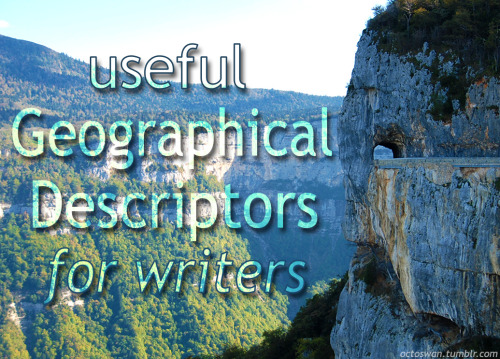


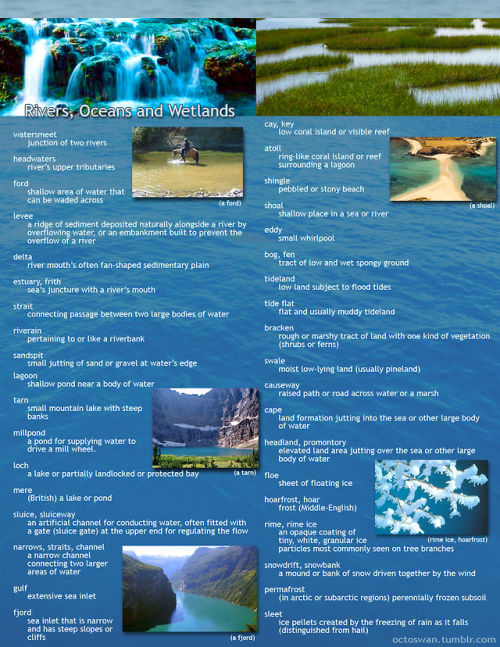
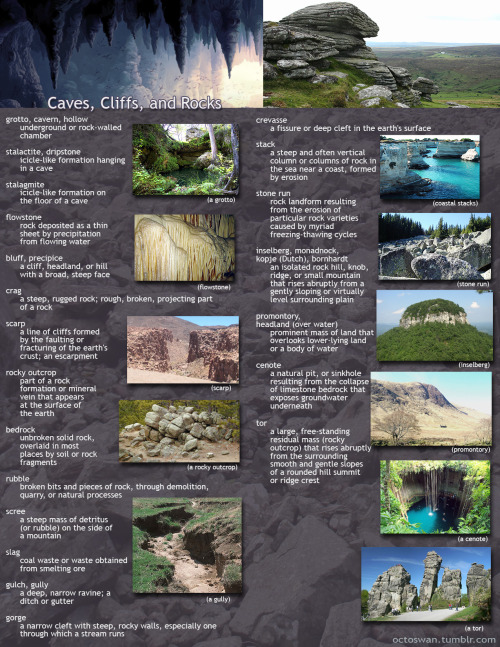
I made these as a way to compile all the geographical vocabulary that I thought was useful and interesting for writers. Some descriptors share categories, and some are simplified, but for the most part everything is in its proper place. Not all the words are as useable as others, and some might take tricky wording to pull off, but I hope these prove useful to all you writers out there!
(save the images to zoom in on the pics)
The Author Speaks: All My Original Writing Content
For your convenience, a masterpost of all (or most) of my original posts so far. It will obviously be updated as I create and add more!
Enjoy, and thank you for reading! <3
The Basics: Plotting, Descriptions, and More
The Dos and Don’ts of Beginning a Novel
How to Write Good Dialogue
Notes on Chapters
My Top Tips for Sticking to That Damn WIP
How to Avoid Purple Prose
The Objective Correlative
Tips for Visual Thinkers
5 Ways to Name Your Novel
Romance
How to Write a Kiss Scene
How to Write a (Healthy) Romance
Mythology
Angelic Cheat Sheet
Irish Mythology Resources
Academia
Masterpost for Writing Academic Essays
Horror
My #1 Tip For Writing Horror
Monster of the Week
Werewolves
Vampires
Zombies
Characterization
How to Get to Know Your Characters
Male Protagonists to Avoid in Your Writing
Female Protagonists to Avoid in Your Writing
More Female Protagonists to Avoid in Your Writing
The Importance of Antiheroes
How to Write Strong Female Characters
The Many Faces of the Strong Female Character
The Traits of a Likable Hero
The Secret to a Relatable Villain
Types of Unreliable Narrators
How to Write (or Avoid) Abusive Parents
The Dos and Don’ts of Writing Smart Characters
Reference Masterposts
Depicting Deaf, Blind, or Mute Characters
Depicting Amputees
Depicting Wheelchair Users
Depicting Jewish Characters
Depicting Black Characters
Depicting ADHD
Depicting Autism
Depicting Trans Women
Depicting Trans Men
Depicting Nonbinary and Genderfluid Characters
Depicting Asexual Characters
Depicting Drug Addiction
Depicting Eating Disorders
Depicting Obsessive Compulsive Disorder
Depicting Schizophrenia
Worldbuilding Masterpost
Publishing Resources:
Places to Post Original Fiction
Marketing Masterpost
My Published Fiction:
Gentlefolk - A timid woman faces her deepest fears in order to try and reclaim her stolen child from charismatic local Nature Gods. Only to discover that everything she’s been taught about them might be wrong.
The New Gods - Society is populated by gods, new and old. Some are more frightening than others.
Gunpowder Sigil - In a windblown Western town, a young girl conducts a summoning ritual for a spectral gunslinger. Magical realism meets the Western.
The Undertaker’s Apprentice - A lovesick undertaker in training goes on a disastrous first date, with a corpse as a third wheel.
The Young Immortal - A relatively youthful member of the immortal community reflects on his first century of life and his relationship with his oft-reincarnated soulmate.
The Bear - An anxiety-ridden young man with a talent for avoiding his problems decides not to acknowledge the grizzly bear trapped in his bedroom during a busy a day.
Strange New Worlds Anthology - A compilation of my short fiction, including previously published and previously unseen works. Set to release in 2022.
Happy writing, everybody!
Character’s rooms say a lot about them
Whenever I show a character’s room for the first time, I always find myself thinking long and hard about it.
So much so, I often avoid it out of fear of getting it wrong.
I think it’s a very important insight into a character and there are so many small details we can use.
Is there bed made or a mess?
Is the room tidy or a mess?
Do they have posters up on the walls?
Are there photos anywhere? If so, of whom? Friends? Family? Random places they’ve visited?
What useless junk is there? A snow globe from a visit to the zoo? Some figurines from a show they liked as a kid?
What not useless junk is there?
Do they have a hobby and where can we see that in their room?
Do they have a large or small desk?
How big is their closet? Is it an open or closed design?
Is the window open?
Are there plants by the window?
Are the curtains pulled?
Where are their dirty clothes kept? Thrown on the floor or in a laundry basket?
Are there any empty bowls or dirty plates? This tells us a character comes to their room to eat. Why? To avoid others or because they don’t want to be away from their work?
There is so much you can tell about a character from their room! It’s kind of intimidating but also amazingly fun to think about.
As usual, check out my socials and book here.
Maybe I’ll do a full post going into detail about character’s rooms. I’ve been doing a lot of shorter posts lately, I’m kind of going through a bit of brain fog. It makes sense. I’m on a restricted diet (for health reasons, not weight related or anything) so I’m a little hungry, I’ve managed to somehow get into a schedule of waking up at 8am, leaving home at 9am and not getting back until 10pm. University plus apprenticeships was maybe not my brightest idea. But oh well, thankfully I enjoy my apprenticeship and my university course. Plus I’m finding just enough time over the weekend to keep up with Tumblr and TikTok.
I’ve said this plenty of times before but, if you have any questions, request for writing advice, anything! Right now they’re more aprecitated than ever because you’re saving me having to actually think of a post! (Although I do have about nine posts in queue so if my answer takes a while, blame my efficiency!)
Writing With No Motivation
I wrote my first draft in three months. All 110,000 words of it. I have ADHD, so concentration isn’t easy for me and during this time I was working a full time job. I wrote in evenings and on weekends, and you can bet I didn’t feel motivated to write every single day, but I did and I’m here so tell you how.
1. Have a set time to write.
I committed myself to an hour of writing daily in which I would bash out 1,000 words. Getting into a routine helped me write even when I didn’t really feel like it, I just became used to writing at this time every day. If you can’t do 1,000 words in an hour, that’s okay. Set a time goal instead of a word count goal, I find that allows me to put extra energy into concentrating as I know when it will end.
2. Remove distractions from sight.
Object permanence is a myth. Put your phone in the next room, or under your pillow when you’re at your desk, put it on absolute silent. Get noise-cancelling headphones to block out kids/siblings. If you get an impulse to do something, write it down and do it after. Turn your wifi off and only turn it back on for research purposes.
3. 20 minute sprints
On days when you really don’t feel like writing, set a 20 minute timer and a minimum word count of 200 words. Bash that out and if you’re not in the flow after 20 minutes, stop, but you might find you are, so carry on until it ends! Remember, any no. of words a day is better than 0.
4. Get a Concentration Candle
The candle is only allowed to be lit while you’re concentrating. If you get distracted, you have to blow it out and that’s kinda sad. Also if it’s scented you’ll start to associate the smell with concentrating and writing and that will help you feel ventured and focused. Idk why this works so well, but it really does, trust me.
5. Work out where the scene/chapter/act/story is going.
One of my biggest deterrents for writing is not knowing what to put on the page next. I struggle to do both pretty words and developing a good plot at the same time. So I block out the scene, I plot, I get excited about the rest of the book, I make sure this scene or chapter is important! This never fails to motivate me.
I hope this has helped! Feel free to add to this!
[if reposting to Instagram please credit @isabellestonebooks]
Tips for Writing a Difficult Scene
Every writer inevitably gets to that scene that just doesn't want to work. It doesn't flow, no matter how hard you try. Well, here are some things to try to get out of that rut:
1. Change the weather
I know this doesn't sound like it'll make much of a difference, but trust me when I say it does.
Every single time I've tried this, it worked and the scene flowed magically.
2. Change the POV
If your book has multiple POV characters, it might be a good idea to switch the scene to another character's perspective.
9/10 times, this will make the scene flow better.
3. Start the scene earlier/later
Oftentimes, a scene just doesn't work because you're not starting in the right place.
Perhaps you're starting too late and giving too little context. Perhaps some description or character introspection is needed before you dive in.
Alternatively, you may be taking too long to get to the actual point of the scene. Would it help to dive straight into the action without much ado?
4. Write only the dialogue
If your scene involves dialogue, it can help immensely to write only the spoken words the first time round.
It's even better if you highlight different characters' speech in different colors.
Then, later on, you can go back and fill in the dialogue tags, description etc.
5. Fuck it and use a placeholder
If nothing works, it's time to move on.
Rather than perpetually getting stuck on that one scene, use a placeholder. Something like: [they escape somehow] or [big emotional talk].
And then continue with the draft.
This'll help you keep momentum and, maybe, make the scene easier to write later on once you have a better grasp on the plot and characters.
Trust me, I do this all the time.
It can take some practice to get past your Type A brain screaming at you, but it's worth it.
So, those are some things to try when a scene is being difficult. I hope that these tips help :)
Reblog if you found this post useful. Comment with your own tips. Follow me for similar content.
Resources For Describing Characters

Physical Appearance
Arms
Athletic Build
Back
Butts
Cheeks
Chest
Chins
Curvy Build
Ears
Eyebrows
Eyes
Faces
Facial Hair
Feet
Fingernails
Fingers
Hair
Hands
Head
Hips
Jaws
Knees
Legs
Lips
Muscular Build
Neck
Noses
Shoulders
Slender Build
Sickly Build
Skin
Stocky Build
Stomach
Teeth
Toenails
Toes
Underweight Build
Character Traits
Affectionate
Ambitious
Bossy
Brave
Calm
Cautious
Charismatic
Clever
Conceited
Courageous
Creative
Critical
Curious
Determined
Diplomatic
Dishonest
Disorganized
Eccentric
Excitable
Friendly
Funny
Generous
Glamorous
Guarded
Honest
Impulsive
Independent
Intelligent
Just
Kind
Loyal
Manipulative
Mature
Modest
Mysterious
Naïve
Optimistic
Prejudiced
Persistent
Proper
Responsible
Sensitive
Sentimental
Serious
Shy
Reckless
Stingy
Stubborn
Talented
Thoughtful
Thrifty
Visionary
Wise
Witty
Worry Wart
Wounded
Talents & Skills
A Knack for Languages
A Knack for Making Money
A Way with Animals
Archery
Astral Projection
Astrological Divination
Baking
Basic First Aid
Blending In
Carpentry
Charm
ESP (Clairvoyance)
Empathy
Enhanced Hearing
Enhanced Sense of Smell
Enhanced Taste Buds
Farming
Fishing
Foraging
Gaining the Trust of Others
Gaming
Gardening
Good Listening Skills
Haggling
Herbalism
Hospitality
Hot-Wiring a Car
High Pain Tolerance
Knife Throwing
Knowledge of Explosives
Lip-Reading
Lying
Making People Laugh
Mechanically Inclined
Mentalism
Mimicking
Multitasking
Musicality
Organization
Parkour
Photographic Memory
Predicting the Weather
Promotion
Psychokinesis
Reading People
Regeneration
Repurposing
Sculpting
Self-Defense
Sewing
Sharpshooting
Sleight-of-Hand
Strategic Thinking
Strong Breath Control
Super Strength
Survival Skills
Swift-footedness
Talking With The Dead
Throwing One’s Voice
Whittling
Wilderness Navigation
Wrestling
Elemental Abilities
Miscellaneous
Voices
Voice Types
Speech Patterns
Speech Impediment
List of Character Flaws
List of Archetypes
Hairstyles
Describing Body Types & How They Move Around
Secrets To Give Your Character
Support Wordsnstuff!
Request A Writing Help Post/Themed Playlist/Writing Tips!
Send Me Poetry To Feature On Our Instagram!
Receive Updates & Participate In Polls On Our Twitter!
Like us and share on Facebook!
Read More On Our Masterlist & See our Frequently Asked Questions!
Tag What You Want Me To See With #wordsnstuff!
Participate in monthly writing challenges!
Hi, so I've finished a short story, a first draft you could say, but there are still some kinks in it that I want to iron out. What is stopping me is that it seems just such a huge job, I wouldn't know where to start. And so I keep making excuses. (Chances are I'll use this as an escuse as well, that I'll wait until I hear your answer.) Any tips on where to start?
Procrastination & The Editing Stage...
Procrastination is typically a symptom of anxiety and perfectionism. Before you ask how you solve the problem, you should figure out why you’re having it in the first place. This is an immensely helpful practice in the long run. Ask yourself why you’re so anxious to start examining your own work and test various possible exercises that could soothe this anxiety long enough to get started.
Editing is understandably very intimidating. It’s daunting to have to sit down and actively look for flaws (or as I like to say, room for improvement) in your own work. Writing is a practice in vulnerability sometimes editing can feel like critiquing your own emotions. In order to edit well, you have to detach from your own connection to the content and view it objectively. If you’re having trouble with this, I recommend putting literal distance between yourself and the writing.
Let it sit physically and mentally away from you for a few months and then come back to it with fresh eyes and preferably a second project in the foreground of your writing time. This will allow you to see it as a story rather than a part of you, and therefore you will find it easier to criticize.
I have a few posts and tips that touch on the subject of procrastination and approaching work you’re intimidated by that expand upon the topic:
Stop Getting Too Attached When Writing
Healthy Forms of Motivation
How To Have A Productive Mindset
How To Fall In Love With Writing
Writing Through Mental Health Struggles
Dear Writers Who Are Hesitant To Start Writing
“All First Drafts Are Crap” -- My Thoughts
Getting Back To Writing After A Long Hiatus
Why “Burnout” Is Oay - The Creative Cycle
Wanting To Finish A Story You’ve Fallen Out of Love With
How To Use Beta-Reader Feedback
How To Actually Get Writing Done
Writing On A Schedule
Coming Back To A Story After A Break
Coming Back To A Story You’ve Grown Since
How To Prevent Getting Stuck
Sticking To A Story (Working on Multiple Projects)
Writing Your Way Through The Plot Fog
Get Back Into The Stride of Writing
When you are finally ready to start editing, perhaps a few of these resources may be helpful to you:
Step-By-Step : Editing Your Own Writing
Improving Flow In Writing
Constructive Criticism : How To Give & Receive
How To Make A Scene More Heartfelt
How To Perfect The Tone
Editing & Proofreading Cheat Sheet
A Guide To Tension & Suspense
What To Change Draft-By-Draft
Dialogue Punctuation
Finding And Fixing Plot Holes
On Underwriting
Denoting Flashbacks
Ultimate Guide To Symbolism
Expanding Scenes
Naming Stories
Tips on Descriptions
Tips on Balancing Development
Tips on Connecting Chapters
Tips On Dialogue
Using Vocabulary
Balancing Detail & Development
Showing Vs Telling
Writing The Middle of Your Story
–
Masterlist | WIP Blog
If you enjoy my blog and wish for it to continue being updated frequently and for me to continue putting my energy toward answering your questions, please consider Buying Me A Coffee, or pledging your support on Patreon, where I offer early access and exclusive benefits for only $5/month.
I’m going to try this!
how to make a story file
As I am preparing for Camp NaNo*, I have been working on my story file. It occurred to me this might not be common or popular practice. “Story File” is a name I gave it and maybe some of y’all have a different name with the same contents.
*There’s still time to apply to join my Camp NaNo cabin!
My Story File contains everything about my story that doesn’t go in the outline.
It’s broken up into major categories and specific templates. So without further ado, here is how I structure my Story File.
Intro
Title
Logline
Synopsis
Genre
Estimated Total Length (word count)
Draft Length Goal (word count)
Character Bank
Main characters and brief, one-sentence descriptions with ages
Themes and Character Development
Central Question
The Yes/No question that is being asked through the whole story
Should have objective qualities, rather than subjective
i.e. “Will they fall in love?” (subjective) vs. “Will they leave their partners and become a couple?” (objective)
Thematic Questions
These are the internal conflict questions that reside in your character(s) and your story
ex. “Can there really be a successful government?”
ex. “Does grief excuse bad actions?”
Themes at a Glance
Words or phrases that relate to the themes of the story
ex. person vs. nature
ex. isolation
ex. grief
ex. first love
Motivation / Stasis State / Final State
for each main character, you should write a sentence or two pertaining to these three things
Motivation: What is the drive behind this character and their past, present, and future actions? What part of their background makes them the way that they are? What are they looking for? What do they want out of this/a situation?
Stasis State: What are they like before the inciting incident? What problems and questions do they have?
Final State: What has changed about them and their outlook? What questions have they resolved? What has happened to their internal conflict?
Relationships
I usually make a little web of the MCs and their relationship to one another. One for the stasis and one for final.
Stasis: How do these characters see each other? How do they act toward the other? (All before the inciting incident)
Final: How do these characters see each other now? How has their idea of one another shifted?
Even if a character dies before the end, include the most recent relationship status in the Final web.
ex. this is how I organize it, using the Draw feature of Google Docs

Character Bank
This is just a very preliminary character bank. If you prefer a more in-depth one, check out my 6 Box Method.
Per (relevant/important) character:
Name
Nickname/preferred name
Age
Field/Occupation
Physical Description
Personality
Personal History
Education/Occupation History
Extra Notes:
Worldbuilding Bank
(Check out my worldbuilding posts on Categories Pt. 1 and 2 for better context)
Seasons and Climate
Languages
Other Cultural Pockets
Folklore and Legends
Fine Arts
Dress and Modesty
Classes
Jobs
Currency and Economics
Shopping
Agriculture and Livestock
Imports and Exports
Literature, Pop Culture, and Entertainment
Food and Water
Holidays and Festivals
Family and Parenting
Relationships
Housing
Religion and Beliefs
Government
Health and Medicine
Technology and Communication
Death
Transportation
Plants, Animals, and Human-environment Interaction
Education
Beauty Standards
Gender and Sexuality
—————————
I hope this helps y’all and supplements what you’re probably already doing. I know it’s helped me tons to have everything in a central place.
Best of luck!
Surnames are just as important as given names. So, I compiled a list of the websites I use to find my surnames.
English Surnames
Dutch Surnames
Spanish Surnames
Scottish Surnames
German Surnames
Italian Surnames
Irish Surnames
French Surnames
Scandinavian Surnames
Welsh Surnames
Jewish Surnames
Surnames By Ethnicity
Most Common Surnames in the USA
Most Common Surnames in Great Britan
Most Common Surnames in Asia
Awesome Sites and Links for Writers
Just about every writer out there has several go-to websites that they use when it comes to their writing. Be it for creativity, writer’s block, to put you in the mood or general writing help. These are mine and I listed them in hopes that you’ll find something that you’ll like or find something useful. I’ve also included some websites that sounded interesting, but I haven’t tried out yet.
Spelling & Grammar
Grammar Girl – Grammar Girl’s famous Quick and Dirty Tips (delivered via blog or podcast) will help you keep your creative writing error free.
The Owl – is Purdue University’s Online Writing Lab (OWL), an academic source from Purdue University (which is in West Lafayette, Indiana, U.S.). It’s contains plenty of grammar guides, style tips and other information that can help with your writing, it’s especially great for academics.
Tip of My Tongue — have you ever had trouble of thinking of a specific word that you can’t remember what it is? Well, this site will help you narrow down your thoughts and find that word you’ve been looking for. It can be extremely frustrating when you have to stop writing because you get a stuck on a word, so this should help cut that down.
Free Rice – is a great way to test your vocabulary knowledge. What’s even better about this site is that with every correct answer, they donate 10 grains of rice to the United Nations World Food Program. So, please disable your adblock since they use the ads on the site to generate the money to buy the rice.
HyperGrammar – is from the University of Ottawa (a bilingual public research university in Ottawa, Ontario, Canada) that offers up a one-stop guide for proper spelling, structure, and punctuation. Being that this comes from a Canadian university, that means that they use standard Oxford English Dictionary spelling. Basically that means you’ll get British English, which differs slightly from formal American English.
AutoCrit – the AutoCrit Editing Wizard analyzes your manuscript to identify areas for improvement, including pacing and momentum, dialogue, strong writing, word choice and repetition. It also provides a number of other writing resources as well. It’s not free, but they do offer 200 characters for analysis at no charge. It’s $29.97 per month or $359.64 for an annual membership.
ProWritingAid – is another automatic editing tool that analyzes your writing and produces reports on areas such as overused words, writing style, sentence length, grammar and repeated words and phrases. They offer a free sample, but you have to make an account to try it out. It’s $3.33 per month ($40 annually, or less if you purchase a longer license).
Writer’s Digest – learn how to improve your writing, find an agent, and even get published with the help of the varied blogs on this site.
Paper Rater – uses Artificial Intelligence to improve your writing. It includes grammar, plagiarism, and spelling check, along with word choice analysis. The basic version is completely free, but they do offer premium subscription for people seeking more advanced features. If you’re interested it’s $14.95 per month or $95.40 per year if you decide to get it.
Syntaxis – it allows you to test your knowledge of grammar with a ten-question quiz. The questions change every time you take the quiz so users are sure to be challenged each time around. It definitely helps writers know if there’s something that they need to brush up on.
Word Frequency Counter – this counter allows you to count the frequency usage of each word in your text.
EditMinion – is a free robotic copy editor that helps you to refine your writing by finding common mistakes.
Proofreading for Common Errors – this is a simple tutorial on proofreading your writing by Indiana University.
BBC – has a section for helping you with your skills, especially in writing, from grammar to spelling, to reading, to listening and to speaking.
Tools
Copyscape – is a free service that you can use to learn if anyone has plagiarized your work. It’s pretty useful for those that want to check for fanfiction plagiarism.
Plagium – is another a copy detection system, that provides a very similar service to Copyscape and uses Yahoo! rather than Google to perform its searches. Just keep in mind that searches for simple text up to 25,000 characters remains free of charge, but any larger requires credits to be purchase.
Write or Die – is an web application for Windows, Mac and Linux which aims to eliminate writer’s block by providing consequences for procrastination. It lets you try it for free, but the desktop version is available for $10. The Write or Die iPad app is $9.99 in the App Store. If you’re really old school, the original web app can still be launched with its modest settings.
Written? Kitten! – is similar to Write or Die, but it’s a kinder version and it’s completely free. They use positive reinforcement, so every time you reach a goal they reward you with an adorable picture of a kitten.
Fast Fingers – offers you an easy way to improve your typing skills. It’s puts you through a quick typing game that tests your typing speed and improves it at the same time. It’s also a great way for writers to warm up.
Information & Data
RefDesk – it has an enormous collection of reference materials, searchable databases and other great resources that can’t be found anywhere else. It’s great to use when you need to find something and/or check your facts.
Bib Me – it makes it easy to create citations, build bibliographies and acknowledge other people’s work. This is definitely something that academics will love. It’s basically a bibliography generator that automatically fills in a works cited page in MLA, APA, Chicago or Turbian formats.
Internet Public Library – is a non-profit, largely student-run website managed by a consortium, headed by Drexel University. Currently this online library is inactive, but it’s still full of resources that are free for anyone to use, from newspaper and magazine articles to special collections. Just keep in mind that it’s not up to date, since they stopped maintaining it on June 30, 2015.
The Library of Congress – if you’re looking for primary documents and information, the Library of Congress is a great place to start. It has millions of items in its archives, many of which are accessible right from the website.
Social Security Administration: Popular Baby Names – is the most accurate list of popular names from 1879 to the present. If your character is from America and you need a name for them, this gives you a accurate list of names, just pick the state or decade that your character is from.
WebMD – is a handy medical database loaded with information. It’s not a substitute for a doctor, but can give you a lot of good information on diseases, symptoms, treatments, etc.
MedlinePlus – is the National Institutes of Health’s web site that contains information about diseases, conditions, and wellness issues in language you can understand. It also offers reliable, up-to-date health information, anytime, anywhere, for free. You can use the site to learn about the latest treatments, look up information on a drug or supplement, find out the meanings of words, or view medical videos or illustrations. You can also get links to the latest medical research on your topic or find out about clinical trials on a disease or condition.
Mayo Clinic – is a nonprofit medical practice and medical research group.
World Health Organization (WHO) – is a specialized agency of the United Nations that is concerned with international public health. Its current priorities include communicable diseases, in particular HIV/AIDS, Ebola, malaria and tuberculosis; the mitigation of the effects of non-communicable diseases; sexual and reproductive health, development, and ageing; nutrition, food security and healthy eating; occupational health; substance abuse; and driving the development of reporting, publications, and networking.
Google Scholar – is an online, freely accessible search engine that lets users look for both physical and digital copies of articles. It searches a wide variety of sources, including academic publishers, universities, and preprint depositories and so on. While Google Scholar does search for print and online scholarly information, it is important to understand that the resource is not a database.
The Old Farmer’s Almanac – this classic almanac offers yearly information on astronomical events, weather conditions and forecasts, recipes, and gardening tips.
State Health Facts – Kaiser Family Foundation provides this database, full of health facts on a state-by-state basis that address everything from medicare to women’s health.
U.S. Census Bureau – you can learn more about the trends and demographics of America with information drawn from the Census Bureau’s online site.
Wikipedia – this shouldn’t be used as your sole source, but it can be a great way to get basic information and find out where to look for additional references.
Finding Data on the Internet – a great website that list links that can tell you where you can find the inflation rate, crime statistics, and other data.
Word References
RhymeZone – whether you’re writing poetry, songs, or something else entirely, you can get help rhyming words with this site.
Acronym Finder – with more than 565,000 human-edited entries, Acronym Finder is the world’s largest and most comprehensive dictionary of acronyms, abbreviations, and initials.
Symbols.com – is a unique online encyclopedia that contains everything about symbols, signs, flags and glyphs arranged by categories such as culture, country, religion, and more.
OneLook Reverse Dictionary – is a dictionary that lets you describe a concept and get back a list of words and phrases related to that concept. Your description can be a few words, a sentence, a question, or even just a single word.
The Alternative Dictionaries – is a PDF, that contains a list of slang words in all types of languages, such as Arabic, Chinese, Japanese, Norwegian and many, many others. There use to be a website, but it’s not there anymore and this is the next best thing I could find.
Online Etymology Dictionary – it gives you the history and derivation of any word. Etymologies are not definitions; they’re explanations of what our words meant and how they sounded 600 or 2,000 years ago.
MediLexicon – is a comprehensive dictionary of medical, pharmaceutical, biomedical, and health care abbreviations and acronyms.
Merriam Webster Online – the online version of the classic dictionary also provides a thesaurus and a medical dictionary.
Multilingual Dictionary – it translate whatever you need from 30 different languages with this easy-to-use site.
Writing Software
Open Office – why pay for Microsoft products when you can create free documents with Open Office? This open source software provides similar tools to the Microsoft Office Suite, including spreadsheets, a word processor, the ability to create multimedia presentations, and more.
LibreOffice – is a free and open source office suite. It was forked from OpenOffice.org in 2010, which was an open-sourced version of the earlier StarOffice. The LibreOffice suite comprises programs to do word processing, spreadsheets, slideshows, diagrams and drawings, maintain databases, and compose math formula.
Scrivener – is not a free program, but it’s certainly a very popular one. It's great for organizing research, planning drafts, and writing novels, articles, short stories, and even screenplays.
OmmWriter – is for Mac OS X, a free simple text processor that gives you a distraction free environment. So you can focus only on your writing without being tempted or distracted by other programs on your computer. They are currently working on a Windows version of their software as well, so keep an eye out for that if you’re interested.
FocusWriter – is a completely free full-screen writing application designed to immerse you in your writing. It keeps your writing space simple and clean without sacrificing functionality. It includes a daily goal tracker, work count and time spent writing. There’s also spell checking, real-time feedback on variables like word and page count, and tabbed document browsing. It's available for Windows, Mac and Linux.
Q10 – is a free portable distraction-free writing tool for Windows. The interface includes nothing but a tiny bar at the bottom that displays the character, word, and page count—you can toggle the bar off for a totally distraction free workspace.
Evernote – is a free app for your smartphone and computer that stores everything you could possibly imagine losing track of, like a boarding pass, receipt, article you want to read, to do list, or even a simple typed note. The app works brilliantly, keeping everything in sync between your computer, smartphone, or tablet. It’s definitely a useful app for writers when you have ideas on the go.
ScriptBuddy – is a full-fledged screenplay software program. It handles the proper screenplay format automatically, so you can concentrate on your story. It is easy to use and the basic version is free.
TheSage – is a free application, which is a comprehensive English dictionary and thesaurus that provides a number of useful and in some cases unusual search tools.
Sigil – is ideal for e-book authors because it's a free EPUB editor with a stack of essential features.
WriterDuet – is a collaborative screenwriting app for working with writing partners in real-time. It also lets you copy text written in Fountain, or other screenwriting programs (Final Draft, Celtx, etc.) and paste it directly into WriterDuet with the correct formatting most of the time. They offer the basic version for free, WriterDuet Pro ($9.00 monthly, $79 yearly and $199 lifetime) and WriterDuet Premium ($299 yearly). WriterDuet works on Mac, Windows, Linux, Chromebooks, iOS, and Android. It gives identical page counts on all devices, and PDFs.
ZenWriter – is a program that gives you an open, peaceful place for composing your thoughts without any distractions. It’s a fullscreen text editor that offers customizable backgrounds, music, and a nifty word count at the bottom of the window. It’s not free, but it does offer a free trial for 15 days. It is available for Windows, and after the 15-day trial period you can choose to purchase it for $17.50 if you want.
WriteMonkey – is a Windows writing application with an extremely stripped down user interface, leaving you alone with your thoughts and your words. It is light, fast and free. It’s also an portable app, so you can stick it on a USB drive and use in on whatever computer you happen to find yourself at.
YWriter5 – is a free word processor and is designed for Windows XP, Vista and beyond. It's a small but very comprehensive tool which helps you to plan your story. It breaks your novel into chapters and scenes, helping you to keep track of your work while leaving your mind free to create. You can set up deadlines, for instance, and the program’s Work Schedule report will let you know how much you’ll have to do, each day, to finish on time. You can even enter your characters, locations and items and freely organize them into scenes. This definitely sounds like it’ll be useful for NaNoWriMo writers.
Kingsoft Office (WPS Office) – is an office suite for Microsoft Windows, Linux, iOS and Android OS. The basic version is free to use, but a fully featured professional-grade version is also available. This software allows users to view, create and share office documents that are fully compatible with dozens of document formats, including Microsoft PowerPoint, Word and Excel. In other words, the format is similar to a Microsoft Word document (.DOC or .DOCX file) and supports formatted text, images, and advanced page formatting. Kingsoft Writer documents can be converted to Microsoft Word *.doc files in the software.
Creativity, Fun & Miscellaneous
National Novel Writing Month – is one of the most well-known writing challenges in the writing community. National Novel Writing Month pushes you to write 50,000 words in 30 days (for the whole month of November).
WritingFix – a fun site that creates writing prompts on the spot. The site currently has several options—prompts for right-brained people, for left-brained people, for kids—and is working to add prompts on classic literature, music and more.
Creative Writing Prompts – the site is exactly what it says. They have 100+ and more, of prompts that you can choose from.
My Fonts – is the world’s largest collection of fonts. You can even upload an image containing a font that you like, and this tells you what it is. Just keep in mind that not all of the fonts are free.
DaFont – has lot of fonts as well, most of them are completely free to download. However, some are demo versions or are only free if you used it for personal use and not commercial use.
Story Starters – this website offers over one trillion randomly generated story starters for creative writers.
The Gutenberg Project – this site is perfect for those who like to read and/or have an e-reader. There’s over 33,000 ebooks you can download for free.
The Imagination Prompt Generator – click through the prompts to generate different ideas in response to questions like “Is there a God?” and “If your tears could speak to you, what would they say?”
The Phrase Finder – this handy site helps you hunt down famous phrases, along with their origins. It also offers a phrase thesaurus that can help you create headlines, lyrics, and much more.
Storybird – this site allows you to write a picture book. They provided the gorgeous artwork and you create the story for it, or just read the stories that others have created.
Language Is a Virus – the automatic prompt generator on this site can provide writers with an endless number of creative writing prompts. Other resources include writing exercises and information on dozens of different authors.
Background Noise/Music
SimplyNoise – a free white noise sounds that you can use to drown out everything around you and help you focus on your writing.
Rainy Mood – from the same founders of Simply Noise, this website offers the pleasant sound of rain and thunderstorms. There's a slide volume control, which you can increase the intensity of the noise (gentle shower to heavy storm), thunder mode (often, few, rare), oscillation button, and a sleep timer.
Coffitivity – a site that provides three background noises: Morning Murmur (a gentle hum), Lunchtime Lounge (bustling chatter), and University Undertones (campus cafe). A pause button is provided whenever you need a bladder break, and a sliding volume control to give you the freedom to find the perfect level for your needs and moods. It’s also available as an android app, iOS app, and for Mac desktop. If you go Premium it’s $9 and you’ll get 1 year of unlimited listening to their audio tracks and access to three more sounds: Paris Paradise, Brazil Bistro and Texas Teahouse.
Rainy Cafe – it provides background chatter in coffee shops (similar to Coffitivity) AND the sound of rain (similar to Simply Rain). There’s also individual volume and on/off control for each sound category.
Forest Mood – is background noise of the forest.
MyNoise – is a website with multi-purpose noise generator that is completely free. It helps you to focus while working in a noisy environment or to help settle your anxiety and it’s also useful in cases of insomnia or tinnitus. It has so many sounds to choose from: Fish Tank, Clockwork, Gregorian Chants, Traffic Noise, and so on.
MyNoise: Online Fire Noise Generator – is also from NyNoise, but it’s a short-cut link for those that only want to hear the sound of fire crackling in a fireplace.
Snowy Mood – is a noise generator that plays sounds of boots walking through snow on an endless loop. It’s simple and straightforward, and perfect for those days when you feel like being snowed in.
Noisli – is a background noise generator that helps you to drown out annoying noises in order to create your perfect environment for working and relaxing. You can mix different sounds together, such as rain and a train or fire and the night sound of crickets or with the waves at a beach.
Purrli – is a white noise generator that recreates the sound and the presence of a cat purring next to you.
Ambient Mixer – is a free online audio mixing tool in which you can create and edit your own ambient music or background sounds. You can even listen to other people’s mixes such as Gryffindor Common Room, Riding with the Winchesters, Mr. Tumnus’ House, A Day in Camp Half-Blood, and so on.
8tracks – is an internet radio website and everyone can listen for free, well it use to be completely free. Unlike other music oriented social network such as Pandora or Spotify, 8tracks doesn’t have commercial interruption (that’s if you get 8tracks Plus). Users can create free accounts and can either browse the site and listen to other user-created mixes for as long as they like, and/or they can create their own mixes. It’s a perfect place to listen to other writer’s playlist, share yours or find music for specific characters or moods. Note: Joining is still free, however you’re now limited to 1 hour of free listening for each week (or more depending on how much people like your mixes, but I’ve been told the limitation is for those in the US only). If you want unlimited access it’s $30 per year or $5.00 a month.
Playmoss – with 8tracks no longer having free unlimited listening and no commercial interruptions many people looked for an alternative and Playmoss is what 8tracks use to be. Playmoss is free to join and it has all the same basic features that 8tracks has, only with extra goodies like unlimited skips, able to see the entire tracklist before playing, start at any point in the playlist, see how many playlists contain a certain song and even collaborate playlists with other people.
“Show, Don’t Tell!”: Using the Five Senses in Writing
This is an extended piece to my ‘Show, Don’t tell’ post. When writing the senses, I like to imagine the scene as if I were watching a movie. It’s the simplest way for me to picture and write when it comes to descriptions. You don’t want to overload the reader, but you do want to paint the picture instead of telling them. Staying aware of the five senses in your writing will dramatically improve your skill. It not only helps the reader be a part of the story but helps the writer set important scenes, without having to outright state what is happening. In this post, I will explain how I use the five senses in my writing. As always, my advice is subjective and only to show what I personally do. Whether you keep the senses in mind as you write, or you edit them in later, making sure you pay attention to keywords will help eliminate the stress of going back later to figure out what (maybe!) went wrong.
SEE: On Sight
One of the easiest ways to go about elaborating sight is to eliminate words related to vision (look, saw, gazed, peek, etc). It also helps to stay aware of items, colors, sizes, etc. Do the same thing you’d do with words related to sight, eliminate them. Of course, don’t erase every word or phrase, but being proactive, keeping them in mind, and avoiding them will help you avoid overloading your reader with too much purple prose. (Granted, I would die for purple prose, but I understand that’s not everyone’s thing).
Examples:
Jill saw Jack running. He carried a silver pail. He tripped and fell down the hill.
There are a lot of sight-words in this example. As the writer, it is your decision to choose what you want to elaborate on, whether it is one thing, or all of them. How much of the story you want to paint is up to you—
Jack’s feet blurred against the green grass as his toe caught his ankle. He rolled on his side, his silver pail flying into the air and reaching Jill first.
Jill craned her neck to find Jack staggering down the hill. Water sloshed from the sides of the bucket, swinging and glistening in the sunlight. He stumbled and grabbed for the handle with his second hand as the pail threatened to leave his grasp, and then he slipped, toppling down the hill.
In both of these scenarios, the reader can “see” that Jack is running and tripped without specifically stating that Jill saw it. They also “see” he had a silver pail and dropped it.
Being more visually descriptive is also very important for facial expressions. It takes a simple mood and elevates it. Describing the expression also gives the reader the chance to “feel” that way too, almost like a mimic, which helps them visualize and empathize with the character.
Example:
Maxine made a disgusted face.
Think of what a disgusted reaction looks like; usually, it involves frowning, pinching your nose, sticking out your tongue, etc. Sometimes, it can help to look in a mirror and write what you’re seeing, too.
Maxine flared her nostrils and stuck out her tongue.
In the latter example, the reader is able to infer that Maxine is disgusted by how the writer described her reaction.
HEAR: On Sound
Describing sound can be tricky. It’s also hard to remember when to use it. We tend to think of sound in terms of music or voices—okay, okay, sometimes we sprinkle in animals howling or the wind blowing, too!—but sound can be incredibly important in setting a scene and is often under-utilized. Sounds let the reader know their surroundings without pulling from what is going on and adds intensity!
Examples:
Manuel sat nervously at the coffee table.
Again, as the writer, you can decide where to incorporate the use of sound. Here are a couple of suggestions, based on the above example:
Manuel’s fingers drummed against the table and drowned out the low whistle escaping from between his teeth as he exhaled. All around him, there was cheerful chatter, through which the barista’s loud voice occasionally sliced.
Manuel’s thoughts whirred and hummed, a dull grinding and the clinking of glass broke through the constant thump of his knee against the underside of the table.
In both of these examples, the reader was able to gather that Manuel was nervous (tapping knee, drumming fingers, low whistle). They are also able to gather he is in a coffee shop (or a restaurant of sorts) without explicitly saying so.
TOUCH: On Sensation
The best way to handle touch is by imagining whatever it is you are describing and what it feels like. If you don’t know how something feels, google it. Don’t describe a snake as slimy just because its scales are shiny and gives it a slime-like effect. That said, touch doesn’t just deal with what your character is physically touching. It can also deal with emotions and help to express them without saying outright how your character feels.
Example:
Opal touched the silk blanket. She felt sleepy and closed her eyes.
Here we can elaborate on what the blanket feels like when Opal touches it and how she feels to indicate she is tired:
The supple fabric slid between Opal’s fingers like water. Her tired muscles sagged and sharp, tiny pinpricks pressed against her heavy eyelids as she lay back.
The reader knows the blanket was very soft and also that she is tired without specifically stating she was sleepy.
TASTE: On Flavor
Taste is a fun sense to mess with. It can show the reader so much more than how delicious the bread is (or how gross dirt is). I like to play around with taste in the weather/air, the taste of fear, the taste of cat hair in your mouth because there is always cat hair in your mouth… all right, maybe that’s a personal thing.
Example:
The sun rose over the city.
What do you use for taste here? A city can’t taste, the sun doesn’t taste, but your character does!
Yellow light spilled over the streets, soaking the grit from the rainbow puddles into the air. The bitter grease lingered and settled in his mouth, strengthening every time he scraped his teeth against his tongue.
Experiment with taste in your writing. Describe things you wouldn’t normally think to taste, like crude oil*. The internet is a good resource when it’s something you don’t want to try yourself, like crude oil**. Chances are, someone out there has already tried it and explained what it tastes like online.
SCENT: On Smell
Ahhh, smell. Smell lets the reader know so much: they can figure out where a character is, what they’re doing, where they are, etc., just from a few scent-related descriptors thrown around. Smell is also useful in triggering memories or past events.
Danny walked through the forest.
You can use so many of the five senses here! But since we’re focusing on scent, let’s zero in on that:
A crisp hint of pine lingered in the air and blended with the pungent decay of the brown needles underfoot.
Without stating anything about a forest, the reader has an idea of where Danny is. You can also use smell to show emotion!
Danny was in love.
How do you smell love, K? Well, you’ve got me there: you can’t. But as a writer, you can think of what love means to you and of things you associate with love, and work from there. Personally, I imagine it would have a sweet smell, maybe too sweet.
A rush of flowery sweetness filled his nostrils as the handsome young man walked by.
There you have it. Of course, there’s a lot more to writing the five senses, as there is with anything, but this is to give you a basic idea of what I do when I’m writing. Being proactive and keeping the senses in mind while writing can be tough and exhausting, but the more you do it, the easier it becomes. And you don’t leave it all for editing! Remember: the most important thing is to keep practicing.
Happy writing!
* Please do not taste crude oil. I can’t believe I have to type this, but some people want to eat Tide Pods, so here I am.
** Do not taste crude oil. You will die.
Acing pacing in your writing
I’ve read too many books and watched too many shows where pacing has ruined a good story. So, here are some of my tips for getting pacing right:
1. Don’t take too long to get to the inciting incident
Look, showing the ordinary life of your protagonist might be interesting if there’s something strange about their life, but readers want stuff to happen.
At least with genre fiction, you shouldn’t take too long to get to the action - the event that gets the story going.
If you can do it well and have readers invested from the start, you can start with the inciting incident. However, for most works I would recommend having it in the second chapter.
Your readers want to know what the story is about, not what the character thinks of his English teacher
2. Keep it moving, but don’t rush
Action is important. It drives the story and it’s interesting. You should make sure to put enough action in your work. Things should be happening.
BUT a novel is not a play or a movie or a comic. What makes reading a full-length novel so entertaining is the detail. The in-depth characterisation and description. The emotion and thought processes.
So, keep it moving, but don’t sacrifice the juicy details. Don’t skip from one action or dialogue scene to the next without taking your readers deeper into the intricacies of the story and characters.
It’s a delicate balance that can only truly be found by reading a lot and practicing.
3. Avoid a sagging middle
Your beginning is solid. Your end is exciting. But the middle is a chaotic mess that bores the reader. Trust me, it happens more than you might believe.
Sagging middle syndrome is a thing, and the only way to avoid it is to plan.
Look, I like pantsing, but planning the middle of your novel will help your pacing exponentially.
Make a rough outline of what needs to happen to get your characters to the climax. Add a few lighter/character-driven scenes where there are too many action scenes in the sequence. Remove events which are unnecessary. And make sure that everything makes sense!
This counts for second books in series as well. It should be good on its own, not just as a filler.
4. Don’t fast forward to the end
I’m looking at you, Game of Thrones.
If you’ve built up the story and set up everything for the final big bang, you have to deliver.
Keep the pacing somewhat similar to that of the rest of the story. Your readers have gotten used to it. And if they’re still reading at that point, they probably like that pace. Don’t write a relatively slow book and then have the climax be over in three pages.
I know you want the climax to be exciting. So, yes, make it a little more fast-paced than the middle. But not massively different.
5. Trust your characters
As with every aspect of creative writing, character is most important.
Is your character experiencing the scene quickly and choppily? Or are they slowing down and taking in everything?
If you stick with what your characters are feeling, you will get it right.
Look, exams have fried my brain. So, this isn’t the most well-formulated post I’ve made. But I hope that it can be helpful.
Reblog if you found these tips useful. Comment with your own pacing tips. Follow me for similar content.
Writeblr Glossary
A list of words commonly used in the Writeblr community and their meaning!
I’ve gotten a lot of questions about what some things mean, so I thought it was time to compile a list of meanings.
Writeblr — A community of writers on tumblr; A blog that posts primarily about writing. See here for a more in-depth explanation. (Also written as Writblr on occasion)
WIP — Stands for Work in Progress. Primarily, it’s a piece of fictional work that is still in the writing process and is unfinished. (Also see: WIP page)
OC — Stands for Original Character. This is a character entirely of your own creation.
Tag list — A tag list is a list of users who will be tagged in every post that a Writeblr makes about a certain WIP. It is often included at the bottom of a post, and people are free to ask to be included, or removed from it.
WIP Page — A page or a post on a Writeblr that describes a WIP. Commonly includes a synopsis, setting, characters, etc. See here for what goes in a WIP page and how to make one.
Tag games — Tumblr games where people will do something (often answer questions, a snippet of their WIP, etc) and ask other users to participate by using the @ function in that post.
Ask games — A tumblr game where a user will request people to send them things with the ask function. Often times will include a list of questions they wish to be asked.
Fanfiction — Fiction written by a fan about an existing TV show, movie, book, etc. Often features the characters, the setting, etc. of that piece of media.
AU — Stands for Alternate Universe. AUs typically feature the same cast of characters of a WIP or an existing piece of fiction with a major change or two. (For example, a Fantasy AU would involve placing the characters in a fantasy setting. There also may be an AU of what might happen if a certain character didn’t die in their story).
Canon — Material or information that is accepted as an official part of a story. (i.e., the creator confirms it and includes it in their story).
Headcanons — Ideas and interpretations of a fictional work that is accepted by a fan, but isn’t necessarily supported by canon.
Moodboard — A collection of images meant to evoke a certain feeling or emotion. Often used by Writeblrs for their WIPs and OCs.
Have a word you’d like to see included? Let me know and I’ll add it!
Have a question on what a writeblr term means? Ask!
How to stop researching (or worldbuilding) and start writing
This is actually advice my mentoring professor gave me when I was writing my first thesis.
He said: Accept that you are never done. There is always more to know, more to research, more questions raised than answered. At some point, you just got to start writing.
Now, “easier said than done, this accepting”, I thought.
I started writing because my thesis deadline was looming. But what if you’re writing a novel and you have no deadline? How do you know when it’s okay to stop researching? When is it okay to stop worldbuilding? (Which is just like doing research, but in your own head instead of in reality.)
My advice to you is: start writing, and you’ll run into the gaps you still need to fill. Then you know what to research before starting your second draft. Let your story tell you what it needs.
For example:

Just fill your margins with a to-research-list for your future self.
That way, it’s also managable: “I finished my first draft, and I have a list of 317 things I need to decide on.” Instead of: “I saw on tumblr that you can’t build a world without knowing everything about the sewage system! And gosh, I haven’t invented three languages yet!”
Advantages:
You get things done.
It’s not overwhelming.
You don’t spend your time inventing things you’ll like so much that you want to infodump them into your story.
You mainly research things that are relevant to your story.
Well, knowing you, you already researched enough irrelevant stuff too.
You get things done.
I hope this was helpful. Don’t hesitate to ask me any questions, and happy writing!
Follow me for more writing advice, or check out my other writing advice here. New topics to write advice about are also always welcome.
Tag list below the cut, a few people I like and admire and of course, you can be too. If you like to be added to or removed from the list, let me know.
Keep reading
Writing vs Storytelling Skills: Improving Writing
Though “writing skill” is often used to refer to all aspects of story crafting, it best refers to the actual writing and technical skills that create the written word of a novel. Addressed in the previous post: Writing vs Storytelling Skills (link embedded), now I’m here to tell you how to work on that specific writing skill.
1. Study up on Literary Techniques: English class isn’t just for assigned reading and essays if you’re serious about bettering your writing. While essay writing and creative writing are different, the literary techniques and how they’re used and applied is good knowledge to have. Especially because a lot of them overlap with tropes and tie into storytelling!
2. Read a variety of books. Various authors, various genres, the more you expand your examples the better. Variation of reading means you’ll be exposed to more ideas, more ways of thought, more writing styles, more everything that you can draw ideas from and help develop your own skill. Even take up books you may not like. Give them a chance, and if the writing isn’t working for you then keep tabs on why.
3. Critique the writing of others. What did you like? What didn’t you like? How does the writing style affect how the book reads? When you critique others, you identify what makes and doesn’t make “good writing”. While a writer can only critique at a close level to their skill, the more they critique, the higher skill climbs, and the better they get. To become a better writer, you should get used to tearing other’s, and your own, work apart. It can help to keep a journal or some kind of record of critiques because as you gain more skill you may change your mind on some points.
4. Tighten up your grammar. It’s fine to make mistakes, especially in a first draft, but if you have consistent grammar errors then it’s time to tackle the issue. Grammar isn’t optional; it exists to help with clarity of communication and a clearer writer is a better writer. It’s true that creative writing allows for the use of semantic grammar or a more fluid approach to sentence structure, but there’s a difference between using purposefully altered grammar for a reason versus just not knowing how to write properly.
5. Try writing exercises. Many of these exist, from things like The Sprint (link embedded), which can help train you get work done, or The POV Swap (link embedded), which works on distinguishing character voice and perspective. Not all exercises are for everyone because there’s a variation to writing styles, but it never hurts to put in some effort to step outside our comfort zone to see if it could work. Further the benefits of writing exercises by developing a routine of regular use.
6. Read your work out loud. The mind has a tendency to put a haze of glory over some things and one way to help look at your writing realistically is to read it out loud to yourself. Reading out loud helps catch errors, some even grammatical, measure flow, evaluate pacing– it’s an amazing technique that gives the writer a better idea of what they’ve really put down. When reading, don’t be afraid to get into it and put emotion into your voice as long as it’s coming from the flow of the writing itself and isn’t forced.
All that said, there’s no such thing as a “perfect writer”. Brushing up on writing skills isn’t about being perfect, it’s about getting better relative to where you were before (and potentially helping close the gap between writing and storytelling skills).
Keep trying, keep practicing– keep writing.
Thinking of asking a question? Please read the Rules and Considerations to make sure I’m the right resource, and check the Tag List to see if your question has already been asked. Also taking donations via Venmo Username: JustAWritingAid
Using the appropriate vocabulary in your novel
It is very important that the language in your novel reflects the time and place in which the story is set.
For example, my story is set in Italy. My characters would never “ride shotgun”, a term coined in US in the early 1900s referring to riding alongside the driver with a shotgun to gun bandits.
Do your research! A free tool that I found to be very useful is Ngram Viewer.

You can type any word and see when it started appearing in books. For example…one of my characters was going to say “gazillion” (I write YA) in 1994. Was “gazillion” used back then?

And the answer is…YES! It started trending in 1988 and was quite popular in 1994.
Enjoy ^_^
Such an excellent post! Reposting
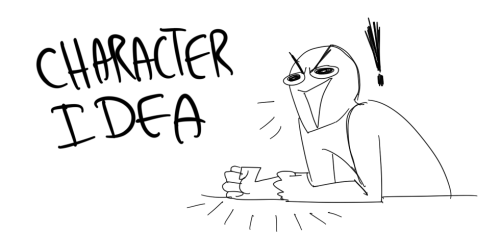
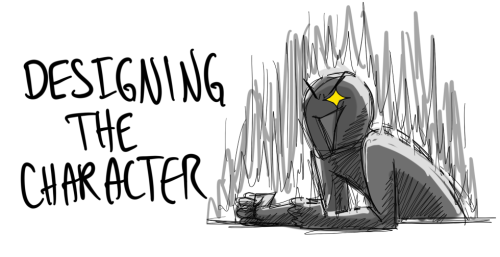
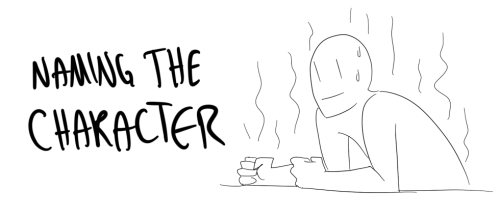
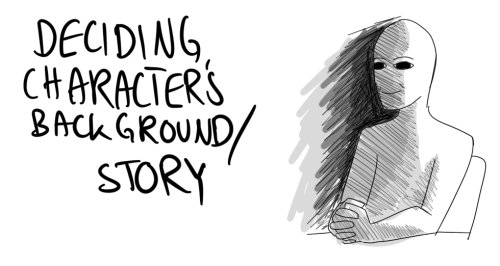
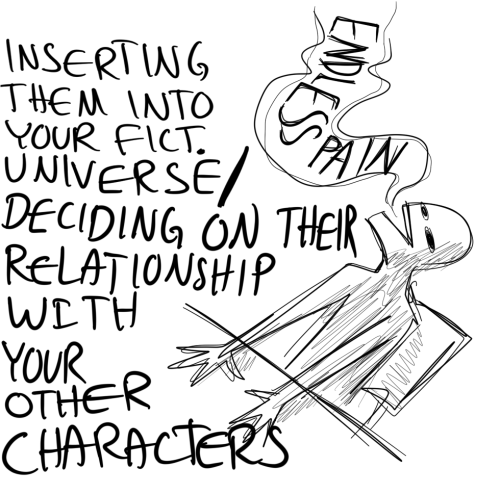
the suffering never ends







“Substitute ‘damn’ every time you’re inclined to write ‘very,' your editor will delete it and the writing will be just as it should be.” -Mark Twain

Dictionaries
Oxford
Longman
Cambridge
McMillan
TheFreeDictionary
Thesaurus
Thesaurus.com
Power Thesaurus
The Free Dictionary – Thesaurus
Oxford’s Thesaurus
McMillan Thesaurus
↳ Visual Thesaurus
VisualThesaurus
GraphWords
VisuWords
Snappy Words
WordVis
Word finders according to loose definitions and synonyms
Reverse Dictionary
Tip of My Tongue
Onomatopeia Dictionary
Translators and In Context Translators
Reverso Context
Linguee
WordReference
LudWig Guru
Dictionarist
ProZ
Reference.com
Example Sentences (words in use)
Foboko Dictionary for Writers
Oxford Learner’s English-English Dictionary (Word definition → show example sentences option)
Collocations
Pro Writing Aid
Academic
Online Collocation Dictionary
Odzic
Oxford’s Collocation Dictionary
Longman’s Collocation Dictionary
Idioms
The Free Dictionary – Idioms
The Idioms
Idiom Site
The Idiom Connection
↳ Phrase Finder
(BrE)
(AmE)
Myths, Creatures, and Folklore
Want to create a religion for your fictional world? Here are some references and resources!
General:
General Folklore
Various Folktales
Heroes
Weather Folklore
Trees in Mythology
Animals in Mythology
Birds in Mythology
Flowers in Mythology
Fruit in Mythology
Plants in Mythology
Folktales from Around the World
Africa:
Egyptian Mythology
African Mythology
More African Mythology
Egyptian Gods and Goddesses
The Gods of Africa
Even More African Mythology
West African Mythology
All About African Mythology
African Mythical Creatures
Gods and Goddesses
The Americas:
Aztec Mythology
Haitian Mythology
Inca Mythology
Maya Mythology
Native American Mythology
More Inca Mythology
More Native American Mythology
South American Mythical Creatures
North American Mythical Creatures
Aztec Gods and Goddesses
Asia:
Chinese Mythology
Hindu Mythology
Japanese Mythology
Korean Mythology
More Japanese Mythology
Chinese and Japanese Mythical Creatures
Indian Mythical Creatures
Chinese Gods and Goddesses
Hindu Gods and Goddesses
Korean Gods and Goddesses
Europe:
Basque Mythology
Celtic Mythology
Etruscan Mythology
Greek Mythology
Latvian Mythology
Norse Mythology
Roman Mythology
Arthurian Legends
Bestiary
Celtic Gods and Goddesses
Gods and Goddesses of the Celtic Lands
Finnish Mythology
Celtic Mythical Creatures
Gods and Goddesses
Middle East:
Islamic Mythology
Judaic Mythology
Mesopotamian Mythology
Persian Mythology
Middle Eastern Mythical Creatures
Oceania:
Aboriginal Mythology
Polynesian Mythology
More Polynesian Mythology
Mythology of the Polynesian Islands
Melanesian Mythology
Massive Polynesian Mythology Post
Maori Mythical Creatures
Hawaiian Gods and Goddesses
Hawaiian Goddesses
Gods and Goddesses
Creating a Fantasy Religion:
Creating Part 1
Creating Part 2
Creating Part 3
Creating Part 4
Fantasy Religion Design Guide
Using Religion in Fantasy
Religion in Fantasy
Creating Fantasy Worlds
Beliefs in Fantasy
Some superstitions:
Read More
Writing x Characters When You Aren’t x, A Masterlist
x: a variable used to represent something unknown.
We’ve seen an influx of questions about how to write stories based around characters of color, disability, non-binary, etc. when the author does not fall into these categories. Rather than have these posts take over the site, we’ve decided to compile a list of resources to help our fellow writers become more educated about writing what they do not immediately know. However, this list is not the end-all-be-all of knowledge; one should always try to learn from someone with first hand experience in any topic. The world is constantly growing and changing, and because of that, there will always be more to learn. The admins at Plotline Hotline want to help writers form respectful, informed, and realistic characters that broaden the narrow range we see in literature today.
*Be wary that some of the topics listed below contain sensitive material. Reader discretion is advised.*
As always, the links I found to be especially apt will be in bold. Topics are listed alphabetically, excepting the “other” section.
Culture
Appropriate Cultural Appropriation
What is Cultural Appropriation? [1,2,3]
Cultural Appropriation Is, In Fact, Indefensible
Voice Appropriation & Writing About Other Cultures
Diversity, Appropriation, and Writing the Other [List]
Disability
Writing Disibilities [1,2,3,4,5]
Guides to Writing Deaf or Hard of Hearding People
National Association of the Deaf - Resources [List]
World Federation of the Deaf
Using a Prosthetic Device
Prostehtic Limbs (Character Guide)
How NOT to Write Disabled Characters
A Guide to Disibility Rights Law (United States)
Timeline of Disibility Rights in the United States
Social Security Disability: List of Impairments, Medical Conditions, and Problems [List] (United States)
How to Write Disabled Characters: An Opinion Piece
Artificial Eye Resources [List][Various]
Adapting to the Loss of an Eye
Misconceptions and Myths About Blindness
Blind Characters: A Process of Awareness
Writing Blind Characters [List]
Types of Learning Disabilities [List]
Diversity
A Guide to Spotting and Growing Past Stereotypes
How to Prepare to Write a Diverse Book
The Diversity of Writing
Why Diversity Matters for Everyone
Writing a Driverse Book [1,2,3,4,5]
Diversity, Political Correctness and The Power of Language
Diversity Book List [List][Books]
Basic Tips To Write Subcultures & Minority Religions Better
Basic Tips to Avoid Tokenism
Gender
GLAAD Media Reference Guide - Transgender
Creating Well-Written Trans Characters
A Few Things Writers Need To Know About Sexuality & Gender Expression
Trans (Character Guide & Bio Building)
A Non-Binary Person’s Guide to Invented Pronouns
Gender Neutral Writing [List]
Keeping a Trans* Person a Person
Suggestions for Reducing Gendered Terms in Language [Photo]
How to Review a Trans Book as a Cis Person
Writing Characters of Different Genders [List]
Understanding Gender
Gender Spectrum Resources [List]
Gender History
Illness
Writing Chronic Illness [1,2]
The Spoon Theory - Also pertains to disibility
About HIV/AIDS
Sexually Transmitted Diseases [List]
Sexually Transmitted Infections
Sex and Gender Differences in Health [Study]
All Chronic Illness Topics [List]
Coping with Chronic Illness
All Cancer Types
A Day in the Life of a Home Health Aide/Health Coach
Fiction Books With Chronically Ill Main Characters- Not Cancer [List][Books]
Neurotype (Including Mental Health)
Writing an Autistic Character When You Don’t Have Autism
Depression Resources [List]
What to Consider When Writing Mental Illness
Stanford Psychiatric Patient Care
Inpatient Psychiatric Questions and Tips
Don’t Call Me Crazy [Documentary]
(Avoid) Romanticizing Mental Illness [1,2]
A Day in the Life of a Mental Hospital Patient
State-run vs. Private Mental Hospitals
Mental Disorders
Mental Hospital Non-Fiction [List][Books]
National Institute of Mental Health - Mental Health Information [List]
Writing Autistic
What Causes PTSD?
Remember, Remember: The Basics of Writing Amnesia
ADHD Basic Information
What is a Learning Disability?
What is Neurotypical?
Race
Writing Race: A Checklist for Authors
Transracial Writing for the Sincere
Is my character “black enough”
White Privilege: Unpacking the Invisible Knapsack
Challenge, Counter, Controvert: Subverting Expectations
Writing With Color: Blogs - Recs - Resources [List]
Writing People of Color (If you happen to be a person of another color)
7 Offensive Mistakes Well-Intentioned Writers Make
Description Guide - Words for Skin Tone
Religion
Religion in Novels: Terrific or Taboo?
How to Write a Fantasy Novel that Sells: The Religion
Writing About Faith And Religion
From Aladdin to Homeland: How Hollywood Can Reinforce Racial and Religious Stereotypes
Sexuality
Understanding Sexual Orientation and Gender Identity [List]
Writing Gay Characters [1,2,3]
American Civil Liberties Union - LGBT+ Rights
LGBT+ Rights by Country or Territory
History of Gay Rights
Gay Rights Movement
LGBT+ Culture
Gay Myths and Stereotypes
LGBT+ Studies Web Sites [List]
LGBTQ Youth Issues
LGBTData.com
Overview of Gay and Lesbian Parenting, Adoption and Foster Care (United States)
Other
How Doctors’ Offices—and Queer Culture—Are Failing Autistic LGBTQ People
Five Traps and Tips for Character Development
Developing Realistic Characters
I hope that this list will provide topics a writer may not initially think to research when writing. If there are any resources that you think would be fitting for this list, please let us know! We want to have as many helpful sources as possible to maximize learning opportunities.
Stay educated,
xx Sarah
sometimes you need dialogue tags and don't want to use the same four


